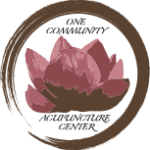
Tension headaches are all too common in our fast-paced world. They often start as a tight band around your forehead, a dull ache at the back of your neck, or even just that nagging sense of heaviness in your head. For many of my patients, tension headaches feel like a cloud hanging over their day—making it harder to think clearly, enjoy their families, or simply relax. The good news is that acupuncture offers a powerful and natural way to find relief.
Traditional Chinese Medicine (TCM) views tension headaches differently than Western medicine. Instead of seeing them as isolated issues, we look at how your entire body is functioning and what underlying imbalances may be contributing to the tension. When I meet with a patient suffering from headaches, I don’t just treat the head pain itself—I investigate the deeper patterns at play, whether they involve blocked Qi (energy), stress-related Liver Qi stagnation, or even disharmony between the body’s internal organs.
How Does Acupuncture Work for Tension Headaches?
From a TCM perspective, acupuncture helps relieve tension headaches by promoting the smooth flow of Qi and blood throughout the body. When Qi is stagnant or blood flow is restricted, pain often follows. By carefully inserting thin needles into specific points on the body—acupuncture helps release blockages, improve circulation, and restore balance.
My patients often find that as soon as the needles are placed, there’s an almost immediate sense of relaxation. It’s like your body remembers how to let go, and the tension begins to dissolve. Over time, regular treatments can not only reduce the frequency and intensity of tension headaches but also address their root causes—whether that’s chronic stress, digestive imbalances, or other factors.
The Impact of Fear on Qi and the Urinary Bladder Channel
Fear is an emotion that, in Traditional Chinese Medicine, is often linked to the Kidney system, which has a deep connection to the Urinary Bladder channel. Mental tension is always rooted in a form of fear, and when this fear becomes chronic or unresolved, it can lead to stagnation and restricted circulation of Qi and blood along the Urinary Bladder channel, particularly in the part of the channel that runs from the eyes to the upper back. This can manifest as tension headaches that originate from the area around the eyes, extend over the head, and settle into the upper back. By releasing this stagnation through acupuncture, we can help to ease both the physical tension and the underlying emotional imbalance, allowing for a smoother flow of Qi and blood and providing significant relief from headaches.
The Role of Stress and Lifestyle in Tension Headaches
One of the most common triggers for tension headaches is stress. Long workdays, responsibilities at home, and constantly being “on” can keep your nervous system in a state of high alert. In TCM, we view emotional stress as a potential disruptor of the Liver’s function in regulating Qi. When the Liver Qi stagnates, it can manifest as tension and pain in the head and neck.
In addition to acupuncture, I often recommend simple lifestyle shifts to help prevent tension headaches from taking root. Breathing exercises, mindful movement practices like tai chi or yoga, and even taking a short walk in nature can all help promote the free flow of Qi and alleviate stress. We can think of acupuncture as the primary treatment, but these daily habits are the supporting pillars that help maintain balance and prevent headaches from returning.
A Holistic Approach to Lasting Relief
I want my patients to know that they’re not alone in their experience of pain—and that it’s possible to find relief without relying solely on medications. Acupuncture offers a gentle but deeply effective way to work with the body’s own healing abilities. By addressing not only the pain itself but also the underlying stress and energetic imbalances, we can create long-lasting relief.
If you’ve been struggling with tension headaches, acupuncture might be the key to finding that relief you’re looking for—naturally, safely, and with your whole well-being in mind. I’m here to support you on that journey.













